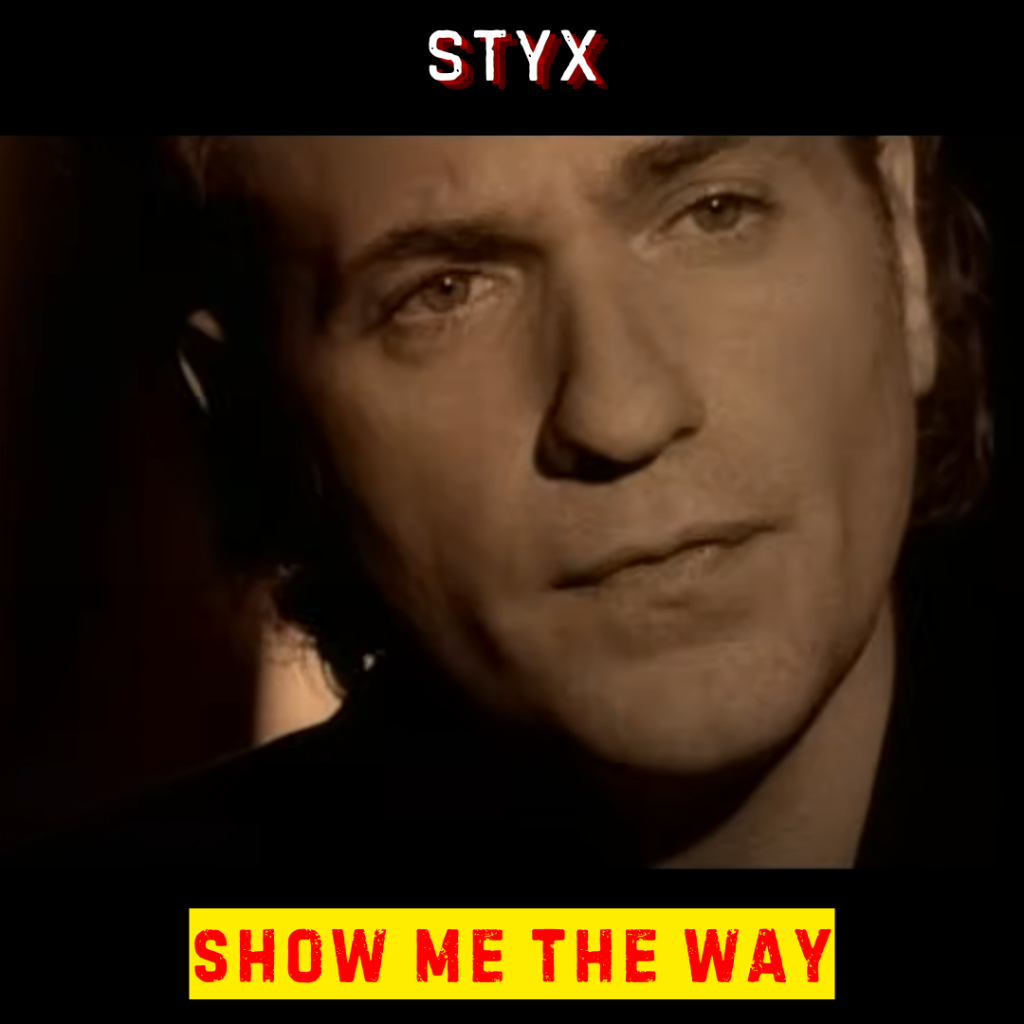Styx – “Show Me the Way”: A Heartfelt Plea for Faith in a Troubled World
Released in 1990 from the album Edge of the Century, “Show Me the Way” stands apart in Styx’s legendary catalog — not just for its chart success, but for its raw emotional honesty. Written and sung by Dennis DeYoung, the song is a deeply personal prayer, asking for guidance, strength, and understanding in a world that feels increasingly chaotic.
While Styx had built their reputation in the ’70s and early ’80s with theatrical rock operas, prog-leaning classics, and power anthems, “Show Me the Way” emerged during a different era — one where the bombast was dialed down, and earnest vulnerability took center stage.
The Sound: Soaring Balladry Meets Quiet Introspection
Musically, “Show Me the Way” is classic power ballad material, but with a spiritual undercurrent that sets it apart. The arrangement is restrained yet powerful, carried by:
- Gentle piano chords and synthesizer layers that build slowly
- Warm, emotive vocals from Dennis DeYoung, filled with quiet strength
- A melodic, understated guitar solo by James Young
- Tight, supportive rhythm work that lets the lyrics take the spotlight
Unlike some of Styx’s earlier over-the-top productions, this track feels intimate, focused, and heartfelt, relying more on sincerity than spectacle.
The Lyrics: A Father’s Prayer Becomes a Nation’s Anthem
“Every night I say a prayer / In the hopes that there’s a Heaven…”
Dennis DeYoung wrote “Show Me the Way” as a prayer for his son, who was questioning the world around him and the role of faith in it. The lyrics reflect a father’s quiet desperation — not to convert, but to seek light, clarity, and meaning in the midst of confusion.
“If I see a light, should I believe?
Tell me, how will I know?”
The song doesn’t offer answers — instead, it asks the questions so many people are afraid to voice. It walks the fine line between spirituality and secular yearning, making it relatable to people of all beliefs.
Ironically, while deeply personal, the song found broader resonance just months after its release.
Cultural Impact: A Gulf War Anthem
When the Gulf War broke out in 1991, radio DJs across America began creating custom “remix” versions of “Show Me the Way,” blending it with audio from news broadcasts and soldiers’ messages home. The result? The song transformed into a soundtrack for a wounded and uncertain nation.
It became a rallying cry — not in anger, but in search of hope, guidance, and healing.
Chart Performance and Reception
- Reached #3 on the Billboard Hot 100 — Styx’s last Top 10 hit to date
- Climbed to #3 on the Adult Contemporary chart
- Became one of the most-requested radio songs during the Gulf War
- Accompanied by a simple, powerful music video, showing people from all walks of life struggling with fear, loss, and belief
Critics praised DeYoung’s songwriting and performance, calling the song earnest, timely, and deeply moving.
Legacy: A Different Kind of Styx Classic
While Styx is often remembered for bombastic hits like “Come Sail Away,” “Renegade,” and “Mr. Roboto,” “Show Me the Way” is an outlier — a reminder that the band could do deep, soulful introspection just as well as rock theatrics.
It’s a song that continues to be discovered by new listeners, especially during times of personal or collective crisis. Its message remains clear:
You’re not alone in your doubts.
You’re not weak for seeking guidance.
And it’s okay to ask the hard questions.
Final Thoughts
“Show Me the Way” is a spiritual rock ballad in the truest sense — not tied to religion, but anchored in humanity. It’s about the search for light when everything feels dark, and it reminds us that strength often comes not from certainty, but from the courage to keep asking for help.
In an era of noise and conflict, Styx delivered a moment of clarity —
one heartfelt piano chord at a time.



Facebook Comments